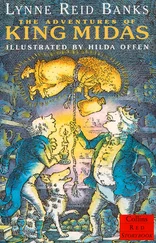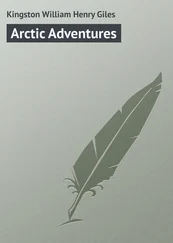Glyn Iliffe - King of Ithaca (Adventures of Odysseus)
Здесь есть возможность читать онлайн «Glyn Iliffe - King of Ithaca (Adventures of Odysseus)» весь текст электронной книги совершенно бесплатно (целиком полную версию без сокращений). В некоторых случаях можно слушать аудио, скачать через торрент в формате fb2 и присутствует краткое содержание. Год выпуска: 2009, ISBN: 2009, Издательство: Macmillan Publishers UK, Жанр: Старинная литература, на английском языке. Описание произведения, (предисловие) а так же отзывы посетителей доступны на портале библиотеки ЛибКат.
- Название:King of Ithaca (Adventures of Odysseus)
- Автор:
- Издательство:Macmillan Publishers UK
- Жанр:
- Год:2009
- ISBN:9780230744486
- Рейтинг книги:3 / 5. Голосов: 1
-
Избранное:Добавить в избранное
- Отзывы:
-
Ваша оценка:
- 60
- 1
- 2
- 3
- 4
- 5
King of Ithaca (Adventures of Odysseus): краткое содержание, описание и аннотация
Предлагаем к чтению аннотацию, описание, краткое содержание или предисловие (зависит от того, что написал сам автор книги «King of Ithaca (Adventures of Odysseus)»). Если вы не нашли необходимую информацию о книге — напишите в комментариях, мы постараемся отыскать её.
King of Ithaca (Adventures of Odysseus) — читать онлайн бесплатно полную книгу (весь текст) целиком
Ниже представлен текст книги, разбитый по страницам. Система сохранения места последней прочитанной страницы, позволяет с удобством читать онлайн бесплатно книгу «King of Ithaca (Adventures of Odysseus)», без необходимости каждый раз заново искать на чём Вы остановились. Поставьте закладку, и сможете в любой момент перейти на страницу, на которой закончили чтение.
Интервал:
Закладка:
‘There’s someone on the other side of the river,’ he told his companion. ‘I think he’s alone, but can’t be sure – and the others haven’t spotted him yet.’
Mentor nodded. ‘I’ll go and warn Odysseus. In the meantime, see if you can stop the others giving us away.’
‘Tell Odysseus he’s carrying a bow,’ Eperitus shouted after him as he sprang off in the direction by which they had come.
Seeing that the mysterious figure was still on his hands and knees, searching for something in the mud of the road, he began the descent as quickly as he could. The scree slope was treacherous, made more slippery by the rain. He had no hope of reaching the river before Damastor and Antiphus, but in his haste sent a cascade of small rocks tumbling down to the road below, catching the attention of the man on the opposite bank. He stood and looked across the flowing waters, just as the others reached the road. They were as surprised as he was to find anybody else in the small valley.
Eperitus sprang down the last stretch of the hill to join his comrades, where they stood eyeing the young man with silent curiosity. He was small and pale with hardly the bulge of a muscle upon him, looking more like a living skeleton than a human being. His head was crowned with a sheaf of black hair, and a thin, juvenile beard sprouted from his bony chin. He wore no armour and his only weapons were a dagger that hung loose in his belt and a bow of white horn slung across his back.
The magnificent bow was much too big for such a skinny lad, and Eperitus knew it must be the weapon Athena had told Odysseus to make his own. He walked across to Antiphus and asked what he thought of the stranger.
‘A child with the weapon of a god,’ the archer replied, eyeing the horn bow greedily.
Damastor agreed. He raised his voice above the cacophony of the river and called out to the stranger, who had been looking back at them with wary interest.
‘What’s a boy doing with a man’s bow? Did you steal it from your father, or did he give it to you in the hope it would make you a man?’
‘What would a bastard such as you know about a father’s gifts?’
The young man looked so meek and pathetic that Eperitus was shocked, as well as amused, by his feisty retort. For a moment Damastor was flabbergasted at the youth’s audacity, but when he realized he had been humiliated his temper quickly got the better of him. He set his jaw and narrowed his eyes, then advanced into the river with his spear levelled above his shoulder. Mirroring his advance, the archer on the far bank unslung his bow, fitted an arrow and waded out to meet him. Unless the younger man was an appalling shot, there was little doubt about the outcome of the fight. Eperitus even felt concern for Damastor, though the Ithacan’s rudeness had deserved an insolent reply. In contrast, Antiphus was laughing at his friend’s vexation and appeared completely unfazed by the encounter.
‘Give me the weapon, lad, and I promise not to kill you,’ Damastor shouted.
His answer was the twang of the great bow. Antiphus choked on a new wave of laughter as the arrow plucked Damastor’s bronze cap from his head and carried it clean beyond the river to clatter amongst the rocks behind them. Damastor was so shocked that he fell back into the water with a great splash. This brought tears of laughter to the eyes of his comrades on the river bank, followed by more shouts of laughter from the road behind. Eperitus turned to see the rest of the party arriving, led by Odysseus and Mentor, of whom only Odysseus was not touched by the hilarity of Damastor’s situation.
Instead he threw down his weapons and waded out into the water, past his floundering comrade and out to the young man with the bow. A new arrow was already primed and aimed at his chest, but Odysseus showed no fear. He stopped a spear’s length from the stranger and looked first at the lad, then at the tall weapon in his hand.
‘My name is Odysseus, son of Laertes of Ithaca,’ he said, looking the archer in the eye and smiling. This surprised Eperitus, as he had expected his friend to announce himself as Castor, son of Hylax of Crete. However, he was not to be wholly disappointed by Odysseus’s deceptive nature. ‘I’ve come to Messene to recover three hundred sheep stolen from my islands, and I’ll reward any help you can give me.’
The man wavered in thought for a moment, then, to the relief of all, lowered his weapon and stepped forward to offer his hand in friendship.
‘I am Iphitus of Oechalia. My father is Eurytus the archer, favourite of Apollo. As for your sheep, well,’ he shrugged his shoulders and spread his hands apologetically, ‘I’ve never seen a country with so few of the creatures. But maybe you can help me?’
‘If I can,’ Odysseus replied, placing one of his oversized hands on Iphitus’s bony shoulder and leading him across to the far bank of the river.
‘I’ve lost some horses.’
‘Lost them?’
Iphitus smiled. ‘Not exactly. My father and brothers think Heracles stole them.’
At that point Damastor regained his feet and came splashing through the river towards the young archer. Iphitus saw him and, with a quickness of mind that echoed his earlier sharpness of tongue, waded out to meet him. He thrust out his hands, palm forward.
‘My apologies, friend. I’m sorry for our misunderstanding, which was entirely my fault. I took you for a brigand without realizing you must, in fact, be a man of noble birth.’
Damastor was taken aback by the unexpected show of friendship, but after a moment’s thought chose to accept the apology. The incident was laughed off in a face-saving show of camaraderie.
The others waded across, leading the mules with their loads of supplies. Mentor handed Damastor his cap and returned the arrow that had plucked it from his head to Iphitus.
‘Is it true you’re hunting Heracles, lad?’ he asked, proving that rumours were already spreading amongst the men of what they had overheard.
Iphitus was about to reply, but Odysseus spoke first.
‘If there’s a tale to be told, and there surely is, then let’s hear it in full and in the right place. For now we should find an inn at Messene where we can eat and restock our provisions; our friend can tell us the whole story then. And perhaps he will tell us about this bow – I’ve never seen its like before. What do you say, Iphitus?’
‘The trail’s already cold,’ he answered, ‘so perhaps I can find some inspiration in a cup of wine. I’ll come.’

Messene was a city hidden in the foothills of the western mountains, lying on the opposite side of the plain from the more lofty Taygetus range. It consisted of a collection of unimpressive hovels on the outskirts, followed by an inner ring of better-made craftsmen’s houses, which in turn encircled a core of progressively larger, more substantial homes belonging to the merchants and nobles of the town. Its crooked streets were muddy with the rain and deeply rutted from the heavy goods carts that occasionally creaked their way up or down the narrow thoroughfares. Despite the chill, naked infants ran about between the houses, happy to be free of their homes again now that the rain had stopped. Mostly their mothers ignored them, preferring to gossip with neighbours in doorways or too busy with the daily chores to concern themselves with noisy children. And everywhere the air smelled of cooking fires, food and dung, the comforting aroma of civilization that reminded the Ithacans of their own distant homes.
The sight of armed men was not uncommon in Greek townships. However, the wounds the newcomers bore showed they had been in a recent fight, and the locals eyed them with suspicion and hostility. Nobody spoke to them, and if they approached them they would either turn away or tell them they could not help. Despite this they eventually found their way to an inn, where the patron was happy to sell them food and wine, and for an additional price provided them with a large room with straw mattresses for all. They gave the mules into the care of the innkeeper’s son, then returned to the main room of the house.
Читать дальшеИнтервал:
Закладка:
Похожие книги на «King of Ithaca (Adventures of Odysseus)»
Представляем Вашему вниманию похожие книги на «King of Ithaca (Adventures of Odysseus)» списком для выбора. Мы отобрали схожую по названию и смыслу литературу в надежде предоставить читателям больше вариантов отыскать новые, интересные, ещё непрочитанные произведения.
Обсуждение, отзывы о книге «King of Ithaca (Adventures of Odysseus)» и просто собственные мнения читателей. Оставьте ваши комментарии, напишите, что Вы думаете о произведении, его смысле или главных героях. Укажите что конкретно понравилось, а что нет, и почему Вы так считаете.










